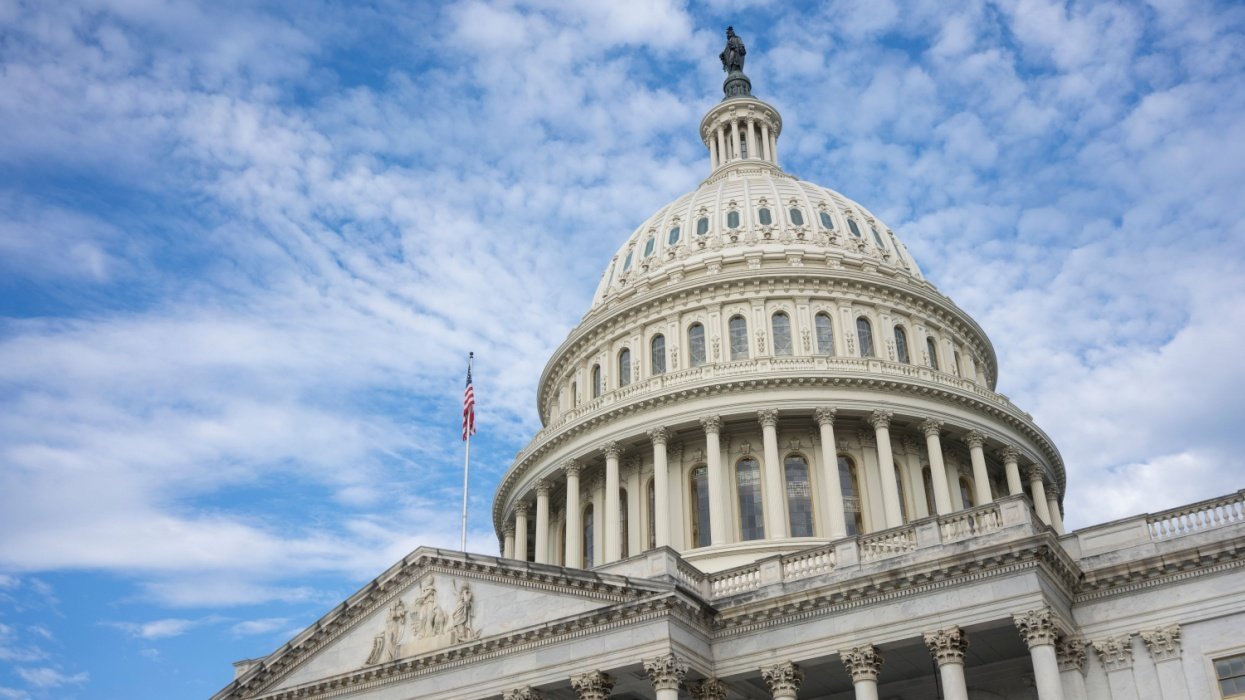A new Texas bill would not only make it a crime for a transgender student to use the facilities that correspond with their gender identity -- it would subject schools that allow their trans students equal access to costly fines and litigation.
Texas Rep. Gilbert Pena, a Republican, introduced House Bill 2801 today, which declares that schools must "adopt a policy providing that only persons of the same biological sex may be present at the same time in any bathroom, locker room, or shower facility." The legislation does not define how a student's "biological sex" would be determined or verified.
The bill does, however, make the school liable to any cisgender (nontrans) student who "encounters a person not of the student's biological sex" in a bathroom, locker room, or shower. Every student who successfully proves the school violated this would-be law "shall be awarded ... exemplary damages in the amount of $2,000." That sum does not include the "actual damages," which the bill notes includes "damages for mental anguish even if an injury other than mental anguish is not shown."
In other words, the bill sets up a standard where cisgender students can not only complain about sharing facilities with a student they believe to be transgender, but if they can prove that student was in the "wrong" restroom, will also be awarded $2,000, in addition to whatever amount a judge deems is sufficient compensation for the "mental anguish" presumably caused by sharing space with a trans person.
A school would be deemed liable to a cisgender student, according to the bill, "if any employee of the district: (1) knew that the person was not of the same biological sex for which the bathroom, locker room, or shower facility was designated; and (2) permitted the person to enter or failed to take reasonable steps to prevent the person from entering the bathroom, locker room, or shower facility."
The bill simultaneously requires schools to provide sex-segregated spaces for male and female students, while also offering "alternate accommodations for certain students." However, the bill explicitly notes that it would not compel schools to undergo new construction or renovation to accommodate trans students.
"This section does not require a school district to construct, maintain, or modify a bathroom, locker room, or shower facility to provide any alternate accommodations," reads the legislation.
Pena's bill, which deals specifically with education, comes less than a month after another Republican state representative introduced legislation that would jail those whose chromosomes don't match the public restroom they might be using. In fact, Pena filed an updated version of that legislation, borrowing language from his school-specific bill, and re-filing the public accommodations bill as HB 2802 on Tuesday. Both bills carve out exemptions for custodial and maintenance staff, those providing medical assistance, and parents accompanying children under the age of 5, or those accompanying children with special needs.
Similar legislation has been introduced in Florida and Kentucky -- in the latter state lawmakers removed a provision that would have awarded students who "discovered" a trans person in the bathroom $2,500, then passed the bill through the Republican-controlled Senate last month.
All of these proposed laws ignore the fact that trans people are at higher risk of facing harassment or violence in public bathrooms than nontrans individuals, while a staggering 59 percent of trans students report being barred from using the school facilities that correspond with their gender identity, according to the National Center for Transgender Equality.
In fact, as NCTE has pointed out, restricting trans students to bathrooms based on "biological sex" puts such youth at risk for increased harassment and stigmitization. Providing a faculty or single-stall bathroom as an alternative singles trans students out, and over time may increase a trans student's likelihood of disengaging from school or dropping out altogether, notes the Gay, Lesbian, and Straight Education Network.
With such evidence mounting, the U.S. Department of Education's Office of Civil Rights has increasingly found that refusing trans students access to their gender's facilities is an instance of "sex discrimination." In December 2014, the DOE announced that gender identity is protected under Title IX of the Civil Rights Act of 1964.
As seen in recent public testimony on similar legislation and local, trans-inclusive nondiscrimination ordinances, those supporting these laws often rely on the provably false fear that trans people, particularly trans women, inherently threaten the safety of cisgender women and children. Although hundreds of trans-inclusive nondiscrimination ordinances have been in force in cities around the country for several decades, there has never been a verifiable, reported instance of a trans person harassing a cisgender person, nor have there been any confirmed reports of male predators "pretending" to be transgender to gain access to women's spaces and commit crimes against them.
Mitch Kellaway contributed to this report.


















































































